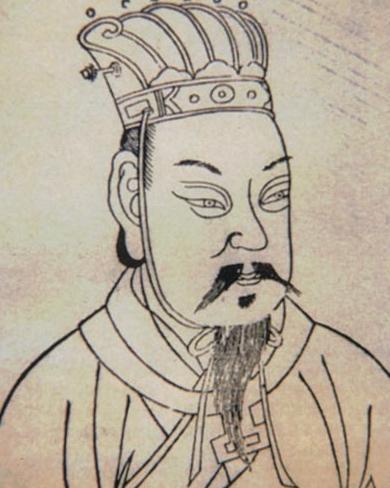(单词翻译:单击)
Cao Cao, courtesy name Meng-te (born A. D. 155, Anhui Province, died 220, Henan Province) was one of the greatest generals at the end of the Han Dynasty (206 B. C.~A. D. 220) of China.
曹操,字孟德,公元155年生于安徽,公元220年卒于河南,汉末最主要的将军之一。
Cao's father was the adopted son of the chief eunuch of the imperial court.
曹操的父亲是宦官中常侍曹腾的养子。
Cao was initially a minor garrison commander and rose to prominence as a general when he suppressed the Yellow Turban Rebellion, which threatened the last years of Han rule.
黄巾起义给汉末统治带来了威胁,起初曹操只是一个不起眼的卫戍部队小头日--洛阳北部尉,后因镇压黄巾起义有功被封为将军。

The Dynasty,however, was greatly weakened by the rebellion, and in the ensuing chaos the country was divided among the major generals into three kingdoms.
然而黄巾起义极大地削弱了汉朝的力量,在随后而起的战乱中,各位大将占据一方把整个国家分为三个王国。
Cao occupied the strategic northern section around the emperor's capital at Luoyang and gradually assumed all imperial prerogatives. His domain was known as the kingdom of Wei.
曹操占领了京师洛阳附近的战略地区,渐渐地拥有了皇帝的所有特权,其领地就是魏国。
Cao's large armies-at one time he is said to have had a million men under arms-and his skillful maneuvering have long been notorious in Chinese history.
曹操的大军--据说有100万人--以及曹操熟练的策略很久以来在中国历史上都是臭名昭著的。
He was described by Confucian historians and in popular legends as the archetypal shrewd, bold, unscrupulous villain.
在儒家历史学家的作品和通俗传说中,曹操被描写成一个典型的精明、大胆、寡廉鲜耻的恶棍。
He was portrayed in this role in the great 14th-century historical novel Romance of the Three Kingdoms, and since then he has been one of the most popular figures of Chinese legend and folklore, with various evil magic powers ascribed to him.
在14世纪著名的历史小说《三国演义》中,曹操就被刻画成这么一个形象。从此以后,曹操成为中国传说中的流传最广的人物之一。在这些传说中,曹操拥有各种各样的邪恶法力。
Modern historians tend to view Cao as a skillful general and pragmatic politician.
然而现代历史学家倾向于将曹操视为善战的将军和注重实际的政治家。
After Cao's death the last Han ruler, Hsien-ti, ceded the throne to Cao's son Cao Pi, who proclaimed the Wei Dynasty (220~265).
曹操死后,汉献帝退位,曹操之子曹丕登基,建立魏国(公元220年至265年)。


